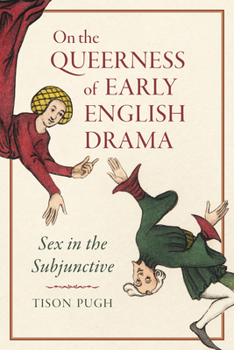On the Queerness of Early English Drama: Sex in the Subjunctive
Often viewed as theologically conservative, many theatrical works of late medieval and early Tudor England nevertheless exploited the performative nature of drama to flirt with unsanctioned expressions of desire, allowing queer identities and themes to emerge. Early plays faced vexing challenges in depicting sexuality, but modes of queerness, including queer scopophilia, queer dialogue, queer characters, and queer performances, fractured prevailing...
Format:Hardcover
Language:English
ISBN:1487508743
ISBN13:9781487508746
Release Date:February 2021
Publisher:University of Toronto Press
Length:256 Pages
Weight:1.10 lbs.
Dimensions:1.0" x 6.5" x 9.3"
Customer Reviews
0 rating





